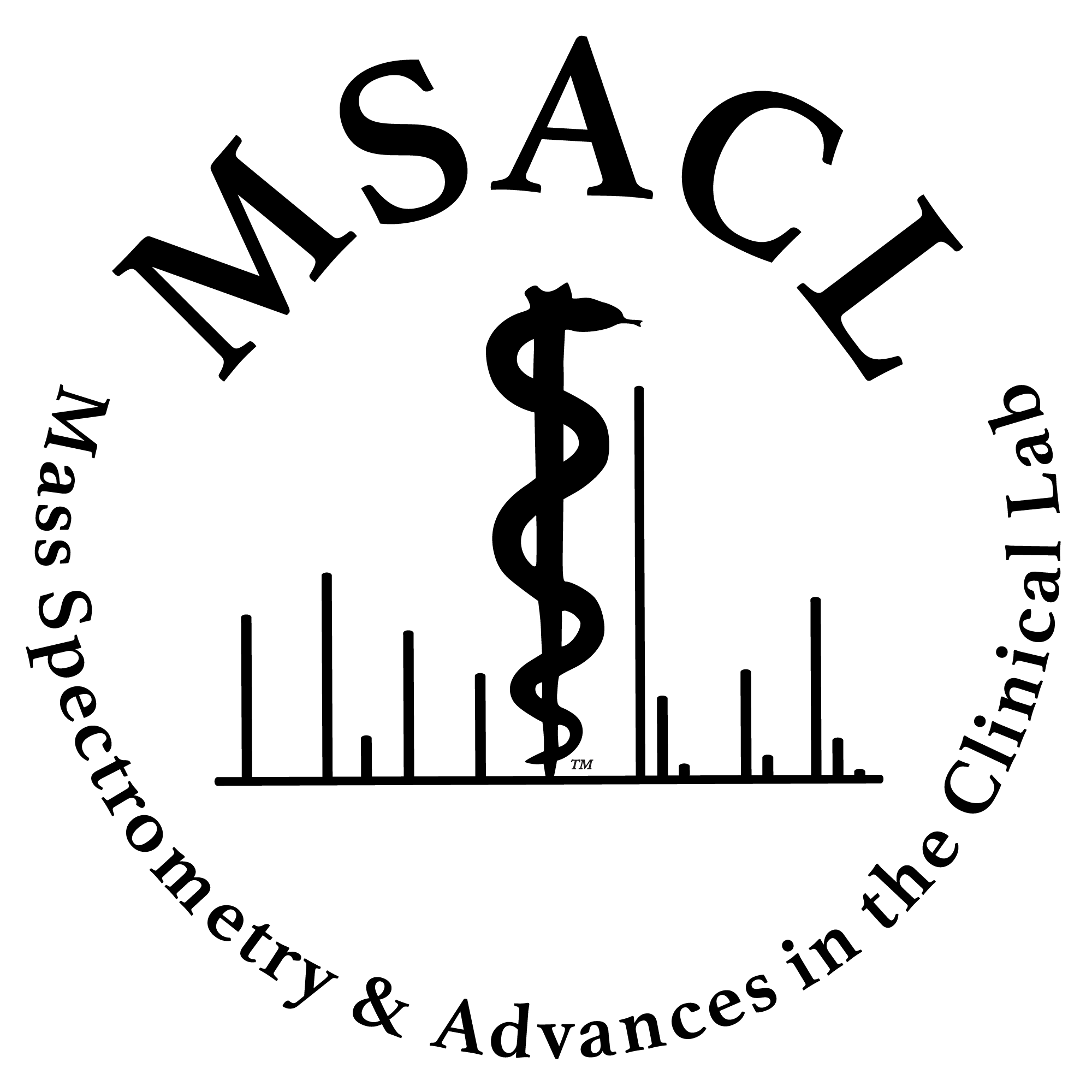MSACL 2024 Abstract
Self-Classified Topic Area(s): Proteomics > Emerging Technologies > Cases in Clinical Analysis
|
|
Podium Presentation in Steinbeck 3 on Thursday at 13:50 (Chair: Ruben Y. Luo / Stefani Thomas)
 A Multiplex Assay of Leptin, Resistin and Adiponectin by Immunoaffinity Enrichment and Targeted Mass Spectrometry A Multiplex Assay of Leptin, Resistin and Adiponectin by Immunoaffinity Enrichment and Targeted Mass Spectrometry
Jie Pu (1), Xinxin Yang (1), Tai-Tu Lin (2), Thomas L. Fillmore (2), Marina A. Gritsenko (2), Shane S. Kelly (2), Adam C. Swensen2, Tujin Shi (2), Stephen R. Master (3), James P. Delany (4), Bret H. Goodpaster (4), Wei-Jun Qian (2), and Jun Qu (1,5)
1 Department of Pharmaceutical Sciences, University at Buffalo, Buffalo, NY;
2 Biological Sciences Division, Pacific Northwest National Laboratory, Richland, WA;
3 Department of Pathology and Laboratory Medicine, Children’s Hospital of Philadelphia, Philadelphia, PA;
4 AdventHealth, Translational Research Institute, Orlando, FL;
5 New York State Center of Excellence in Bioinformatics and Life Sciences, Buffalo, NY.

|
Jun Qu, PhD (Presenter)
SUNY, NY Center of Excellence in Life Sciences |
|
Presenter Bio: Jun Qu is a professor in the Department of Pharmaceutical Sciences of SUNY-Buffalo, and the director of Proteomics and Pharmaceutical Analysis Group in NY Center of Excellence in Life Sciences. His research focus is the development of protein bioanalysis strategies, both on global and targeted level, for quantitative investigation of pharmaceutical/clinical systems. Qu lab is also one of the leaders in LC-MS-based characterization of protein drugs and their targets in pre-clinical models. |
|
|
|
|
Abstract BACKGROUND: Leptin, resistin, and adiponectin have been recognized as critical adipokines that play a role in the pathophysiology of obesity and associated disorders such as type 2 diabetes and cardiovascular diseases. While these adipokines have been historically measured by immunoassays, the specificity of antibody-based assays has frequently been questioned. Consequently, there is growing interest in the development of reliable and multiplexed clinical assays utilizing mass spectrometry. Here we developed a multiplexed immunoaffinity LC-MS/MS (multi-IA-LC-MS) assay for sensitive and selective measurement of leptin, resistin, and adiponectin simultaneously in human plasma or serum.
METHODS: Leptin, resistin, and adiponectin were enriched from plasma samples with an antibody cocktail containing monoclonal antibodies against each antigen. Enriched adipokines were digested, and tryptic peptides were quantified with LC-MS/MS. The validated assay was applied to plasma samples from a cohort of subjects with normal weight, overweight, and obesity.
RESULTS: The lower limits of quantification were 0.5, 0.5 and 50 ng/mL for leptin, resistin, and adiponectin, respectively. Intra-day, inter-day, and total imprecision were all <15%, and spike recovery was consistently > 83% for the three adipokines. Comparison with individual immunoassays resulted in a good correlation (all r ≥ 0.869). Compared to subjects with normal weight, a ~9-fold increase and a ~1.6-fold decrease was observed for circulating leptin and adiponectin, respectively, in subjects with obesity.
CONCLUSIONS: A multi-IA-LC-MS assay was demonstrated for simultaneous and sensitive measurement of leptin, resistin, and adiponectin in clinical samples. The developed quantitative method could hold substantial potential for obesity-related clinical applications.
|
|
Financial Disclosure
| Description | Y/N | Source |
| Grants | yes | |
| Salary | no | |
| Board Member | no | |
| Stock | no | |
| Expenses | no | |
| IP Royalty | no | |
| Planning to mention or discuss specific products or technology of the company(ies) listed above: |
no |
|

